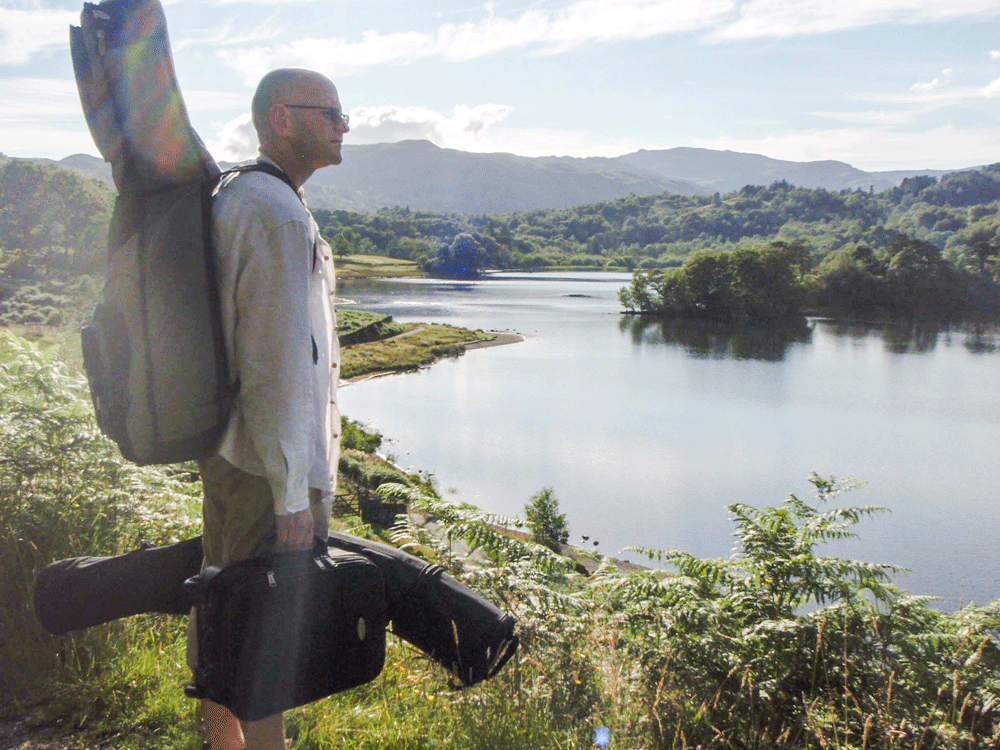Libraries Gave Us Power...
/I’m hugely grateful to Lee Higgins, Jo Gibson and Ruth Currie at the International Centre for Community Music (ICCM) at York St. John university for the opportunity to give the keynote speech at the ICCM student research conference yesterday. The theme I spoke on was ‘libraries gave us power’ (thanks again to Manic Street Preachers), reflecting on my own research journey and what it’s like ‘coming out the other side’. I really enjoyed the opportunity to draw together a number of threads of my current thoughts about Community Music (CM). it’s exciting to be part of an international discourse about music, and hopefully making a positive contribution about what the purpose and value of music is in a complex and ever-changing world. Without getting overtly political, I manage to squeeze in some references to the alarming mobilisation of identities revealed in the recent Brexit and Trump shenanigans, and ask whether making music together can be one way of building bridges between us a species. Thanks to everyone who was there for a lively day of debate and dialogue, especially our students and graduates who did a fantastic job of demonstrating the benefit of studying CM at HE.
Here’s the abstract of my speech, and you can download the full transcript from my publications page, or from Researchgate / Academia, and the presentation that accompanied it is here.
The practices of Community Music (CM) have tended to evolve in very practical ways, amongst communities of practitioners and their communities of participants (Camlin 2015b, p.236). Because of this, developing a ‘theory’ of CM practice through research has been elusive, and the endeavour of doing so viewed with suspicion by some of its practitioners. However, reflecting on my own experiences of developing a professional praxis - building a critical understanding of my own practice through doctoral study – I’m inclined to think that this kind of praxial development can help establish CM as a ’polyphonic truth’ within the Academy. There are a number of reasons for wishing to do so; as well as increasing the value of CM’s diverse practices as cultural capital, it also helps give our field more of a voice in current debate. The emergent turn in cultural policy toward more sophisticated methods of understanding cultural value (Crossick & Kaszynska 2016), participation and ‘everyday creativity’ (Hunter et al. 2016) speaks directly to CM practices, and it is important that as a field, we are able to contribute to and inform the shape of this discourse from a position of confidence and authority.
One way of seeing the fundamental changes to the field of music - and consequently music education - brought about in recent years by the transformation of music’s economic value through online distribution, is that of a ‘hysteresis’ (Bourdieu 1977, p.83; Hardy 2008, pp.126–144), where there is a time lag between changes in the field, and changes in the ‘habitus’ of the field’s occupants. However, while this ‘hysteresis’ is not confined to the field of music, building a critical understanding of what happens to our field as it undergoes the radical transformations it is currently experiencing, will potentially give us useful insights into our future cultural lives. The massive social, political, economic, environmental, cultural and technological transformations currently disrupting human experience across the globe will almost certainly increase in complexity over time, and what ‘music’ means to citizens thirty years hence is likely to be radically different to what it meant to citizens thirty years ago.
If we are to develop a critical understanding of music – and music education – practices in such a rapidly changing cultural landscape, the role of the musician-as-researcher is therefore one to be encouraged. As an emergent voice in the Academy, CM has a great deal to offer this discourse, because its practices are broadly emancipatory, inclusive and accessible, all of which are key to understanding the future role and value of music in society.
